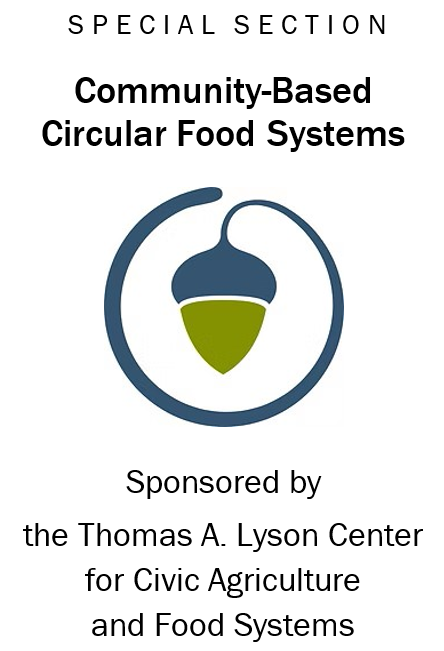Household food waste behaviors of participants in a municipal community compost program
DOI:
https://doi.org/10.5304/jafscd.2025.142.002
Keywords:
citizen science, food waste, compost, community food systems, circular food systemsAbstract
Food waste is a critical problem in the U.S. and globally. Most household food waste is landfilled, with just a small proportion composted. Household food waste accounts for a substantial amount of the food waste problem, but because it occurs in the privacy of people’s homes, we have a limited understanding of it, hindering our ability to create policies or programs to address the issue. Community composting programs have the potential to reduce the amount of landfilled food waste and convert it into a valuable resource. One strategy to address this gap is citizen science, whereby the public is trained to collect data and participate in the research cycle. This technique is particularly useful for answering research questions in real-world conditions to which researchers typically do not have access, such as individuals’ daily lives and activities in their homes. The purpose of this study was to gain a baseline understanding of the amount of food waste individual households contribute to a community compost program, the primary reasons people generate food waste, the types of packaging households typically discard, and individuals’ knowledge, attitudes, and beliefs about food waste and the impact that a community-based compost program has on their lives. Participants in a community-based compost program in Florida have positive attitudes and beliefs about reducing food waste, but they have a less positive perception of the value judgments of influential people in their social circles (i.e., social norms) regarding food waste. Participants have limited confidence that they can reduce their food waste. Community-based compost program participants indicate that the program has increased their awareness of food waste, reduced their waste, and increased their appreciation of community-based circular food systems (CB-CFS), i.e., systems that support community well-being while minimizing environmental harm and resource depletion. This study highlights the value of a community-based compost program for diverting food waste from individual households, increasing knowledge, and changing resident attitudes and behaviors related to food waste. Our findings suggest that key behavioral variables, such as self-confidence, may support individual ability to reduce food waste, and that participation in an community composting program may bolster self-confidence and increase the likelihood that individuals reduce household food waste. We recommend that stakeholders interested in developing a community composting program conduct feasibility assessments and provide education to program participants.
Metrics

Downloads
Published
How to Cite
Issue
Section
License
Copyright (c) 2025 Catherine G. Campbell, Cody Gusto, Kathleen D. Kelsey, Helen Haase, Nevin Cohen, Kai Robertson, Gregory A. Kiker, Ziynet Boz

This work is licensed under a Creative Commons Attribution 4.0 International License.
The copyright to all content published in JAFSCD belongs to the author(s). It is licensed as CC BY 4.0. This license determines how you may reprint, copy, distribute, or otherwise share JAFSCD content.













